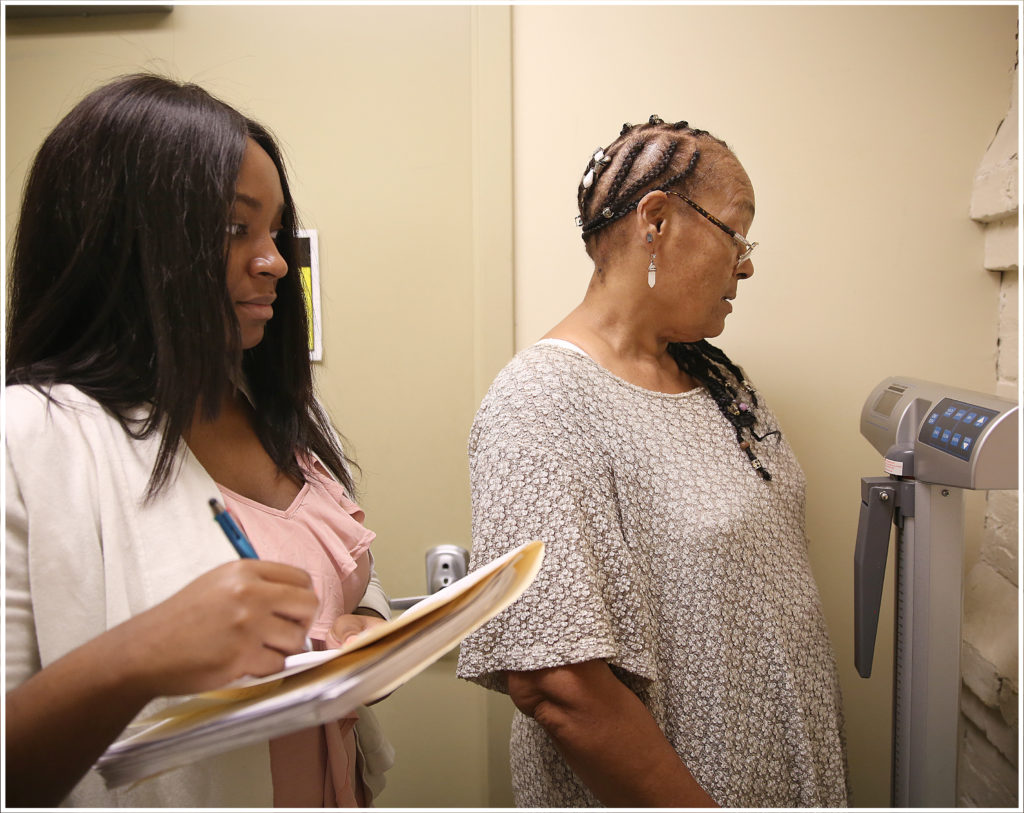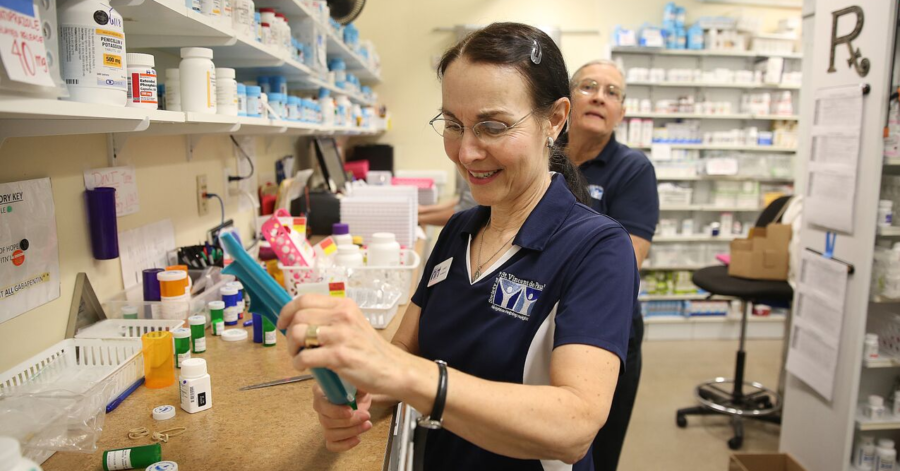Managing medications can be a time-consuming and challenging process for patients, particularly if they are chronically ill or have complex health needs. If needs change, a patient can wait weeks to see their physician, sometimes resulting in worsening health or even a health emergency. A newly passed Ohio law grants pharmacists more discretion in extending or modifying prescriptions without a physician’s order, known as a collaborative practice agreement (CPA).
A two-year $100,000 bi3 grant is fueling a partnership between St. Vincent de Paul (SVDP) Charitable Pharmacy and the Good Samaritan Free Health Center to develop and test a CPA. The CPA allows SVDP pharmacists to reduce wait time for patients and decrease time and cost to the Free Health Center. In its first year, the CPA implemented changes to allow pharmacists to manage medications related to diabetes and tobacco cessation. The partnership has been so successful that it has expanded to include the management of other disease states such as chronic obstructive pulmonary disease (COPD) and acid reflux.

Results include:
- To date, SVDP has dispensed more than 10,000 prescriptions to 250 Free Health Center patients.
- To date, 1,838 pharmacist-identified, medication-related interventions were resolved.
- 351 of these interventions were resolved by a pharmacist using the CPA to provide more efficient care without waiting for a physician response.
- Because these interventions prevented unnecessary physician visits, emergency room visits and hospitalizations, the CPA program saved an estimated $128,722.
The project also leverages pharmacy residents and interns to maximize the availability of services to patients. With the support of bi3, SVDP has developed a Collaborative Practice Agreement Implementation Guide that will serve as a model for other charitable pharmacies and free clinics and includes a business plan enabling the model to be scaled to traditional retail pharmacies.




